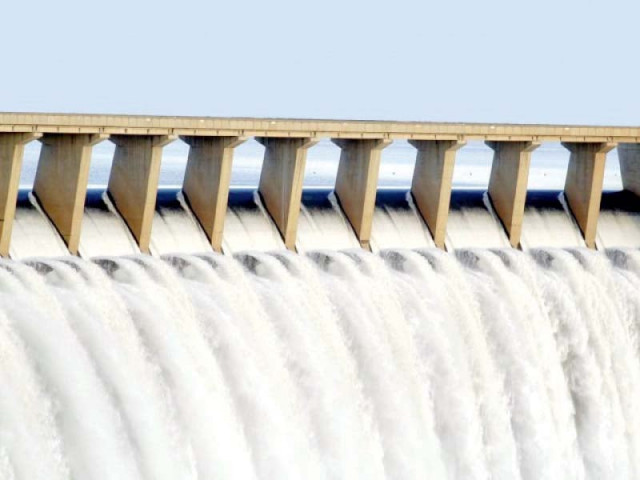Neelum-Jhelum: Sick power project heading towards completion, says PM
WAPDA made payments to contractors without any work on the scheme

Wapda has given Rs1.1 billion to the government of Azad Jammu and Kashmir, where the Neelum-Jhelum project is located, for socio-economic uplift of people of the region. PHOTO: FILE
The project came up for discussion in a high-level meeting chaired by Prime Minister Nawaz Sharif.
Neelum-Jhelum project had a poor design, says WAPDA chief
The premier noted that despite the 969-megawatt Neelum-Jhelum project being ill-planned and payments made to the contractors without any work, the current Wapda chairman took personal interest in making the scheme move at a fast pace.
“It is heartening to see this sick project, which had become a national liability, heading towards completion,” he remarked.
Wapda Chairman Muzammil Hussain told the meeting that the project was scheduled to be ready for mock operations in December 2017, and dry and wet tests would be conducted in January and February 2018.
Giving the time frame for commissioning of the power units, he revealed that the first unit would start functioning by February 28, 2018, the second unit by March 15 and third and fourth units by April 15.
Hussain pointed out that Wapda had given Rs1.1 billion to the government of Azad Jammu and Kashmir, where the Neelum-Jhelum project was located, for socio-economic uplift of people of the region.
He said the previous consultant, who was receiving Rs7.2 million per month, had been relieved of his duties and a new consultant of good repute, who had also been previously engaged with the project, was hired. “This change has been greatly beneficial to the project,” he said.
Wapda, tasked with building dams to ensure water and food security, has come in for a lot of criticism for poor design of the Neelum-Jhelum Hydroelectric Power Project.
News dams are critical to stave off floods that Pakistan has been facing for the past several years. The deluge has caused loss of human lives and damaged agricultural crops.
Neelum Jhelum project on track as 80% work done
The Neelum-Jhelum project is being built on the Neelum River. Initially, its estimated cost in 1989 was Rs15.2 billion that jumped up to Rs420 billion later. The project has been designed in an effort to secure water rights over Neelum as India is constructing Kishanganga Dam upstream.
Wapda authorities acknowledge that the project was not properly planned from the beginning as realistic financial and geographical surveys were not reflected in the original project cycle.
The poor design necessitated mid-course changes in the dam structure, hydraulic structures, cross-section of the Head Race Tunnel and tunneling methodology.
Vague estimates and engineering surveys along with some force majeure like rock burst and water seepage below and above the tunnel were also the reasons behind the delay.
Published in The Express Tribune, January 17th, 2017.
Like Business on Facebook, follow @TribuneBiz on Twitter to stay informed and join in the conversation.


















COMMENTS
Comments are moderated and generally will be posted if they are on-topic and not abusive.
For more information, please see our Comments FAQ